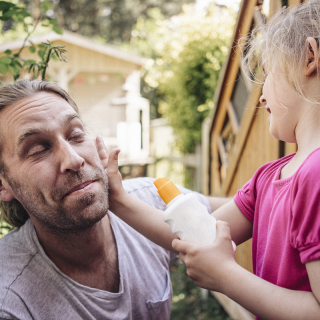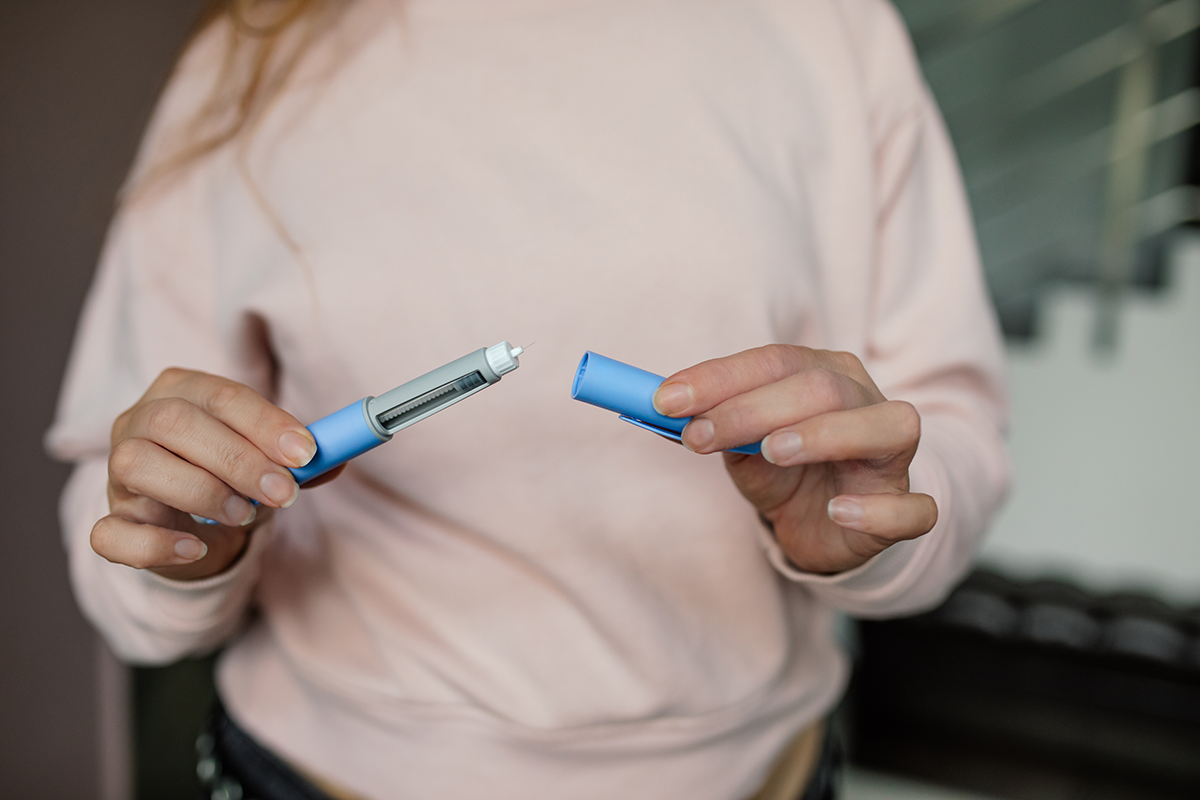5 pharmacist tips for a safe and healthy summer

It’s time for some summer fun! Nothing beats pool parties, backyard barbecues, and trips to the beach. But be careful — sunny skies and hot temperatures do have their risks.
Here are some tips from our pharmacists to stay safe and healthy while enjoying the summer season.
1. Wear sunscreen
Skin cancer is the most commonly diagnosed cancer in the United States,1 but it’s also one of the most preventable thanks to sunscreen. The American Academy of Dermatology (AAD) recommends that everyone, regardless of their age, wear broad-spectrum, water-resistant sunscreen with an SPF of 30 or higher every day — but especially in the summer months — to protect their skin from sunburns and premature skin aging like wrinkles and sunspots. This includes overcast days, since UV rays can go through the clouds.
Don’t forget to apply sunscreen to the tops of your feet, neck, ears, and head (yes, there are scalp/hair sunscreens), and make sure to wear a 30+ SPF lip balm to protect your lips. The AAD recommends applying sunscreen 15 minutes before going outdoors and reapplying every 2 hours, or after swimming or sweating.
Also, if you have a healthcare spending account, sunscreen with an SPF of 15 or higher is considered a qualified medical expense, eligible for reimbursement.
2. Stay hydrated
The warmer the temperature, the higher the risk of becoming dehydrated. Common signs of dehydration include dark urine, dizziness, fatigue, rapid breathing, lack of sweating, and headache. The American Academy of Nutrition and Dietetics recommends that women drink nine cups of water a day and men drink 13. However, that number can vary depending on factors like a person’s age, location, and activity level.
Any drink, not just water, can help, but be careful not to drink too many overly sweet, caffeinated, or alcoholic beverages because of their potential diuretic effects. Alcohol, in particular, can increase the risk of dehydration and heat-related illnesses. Plus, alcohol can interact with many commonly prescribed medications.
Certain medications, like diuretics and oral tablets for type 2 diabetes, can cause dehydration as a side effect. So it’s especially important to drink enough fluids when taking those.
3. Be prepared for summer travel with your medications
As the saying goes, “An ounce of prevention is worth a pound of cure.” Here are some tips to ensure that your trip goes smoothly if you are traveling with medication:
- Bring extra medication for your trip so that you don’t run out.
- Keep medications in their original containers.
- If you’re flying, keep your prescription medications in your carry-on luggage or purse so they don’t get lost.
- Store medications that need to be kept cool (such as insulin) in an insulated bag, and keep them either in your carry-on bag on an airplane or in the passenger area of your car so they aren’t exposed to heat.
4. Stay out of the heat if you have certain health conditions
Prolonged exposure to direct sunlight and hotter temperatures can cause problems for people with certain chronic health conditions. The sun and heat can trigger migraines, asthma symptoms, and rosacea flare-ups, as well as symptoms of multiple sclerosis (MS) and lupus.
Additionally, sunlight and heat can make side effects from certain medications worse. For example, antifungals, retinoids, hormonal contraceptives, cholesterol-lowering medications, statins, antidepressants, and some antibiotics can make your skin more sensitive to the sun and therefore more likely to burn. Other medications can reduce sweating, making it harder for the body to keep cool.
If you take any medication or are prescribed a new medication, ask your pharmacist if there are any concerns with heat or sun exposure and how you can best protect yourself from sunburn or dehydration.
5. Manage medications for children at camp
If your child takes medication during camp hours, here are some tips to help keep them safe and on track:
- Familiarize yourself with the camp’s medication policy.
- Prepare a list of medications with warnings and storage requirements, including an action plan for staff in an emergency.
- Keep medication in the original container with the original label.
- Make sure your child understands what the medication does for them so they understand the importance of taking it.
- Keep tabs on the medication supply and expiration date so that your child has an adequate amount of medication and doesn’t run out while at camp.
If you have any questions about staying safe and healthy this summer, Express Scripts® Pharmacy is here for you. Our specially trained pharmacists are available 24/7 so you can always get the help you need, no matter where your summer takes you.
1 U.S. Department of Health & Human Services: Surgeon General Call to Action to Prevent Cancer: Exec Summary (accessed March 27, 2023): https://www.hhs.gov/surgeongeneral/reports-and-publications/skin-cancer/executive-summary/index.html.
Posted date: July 31, 2025

